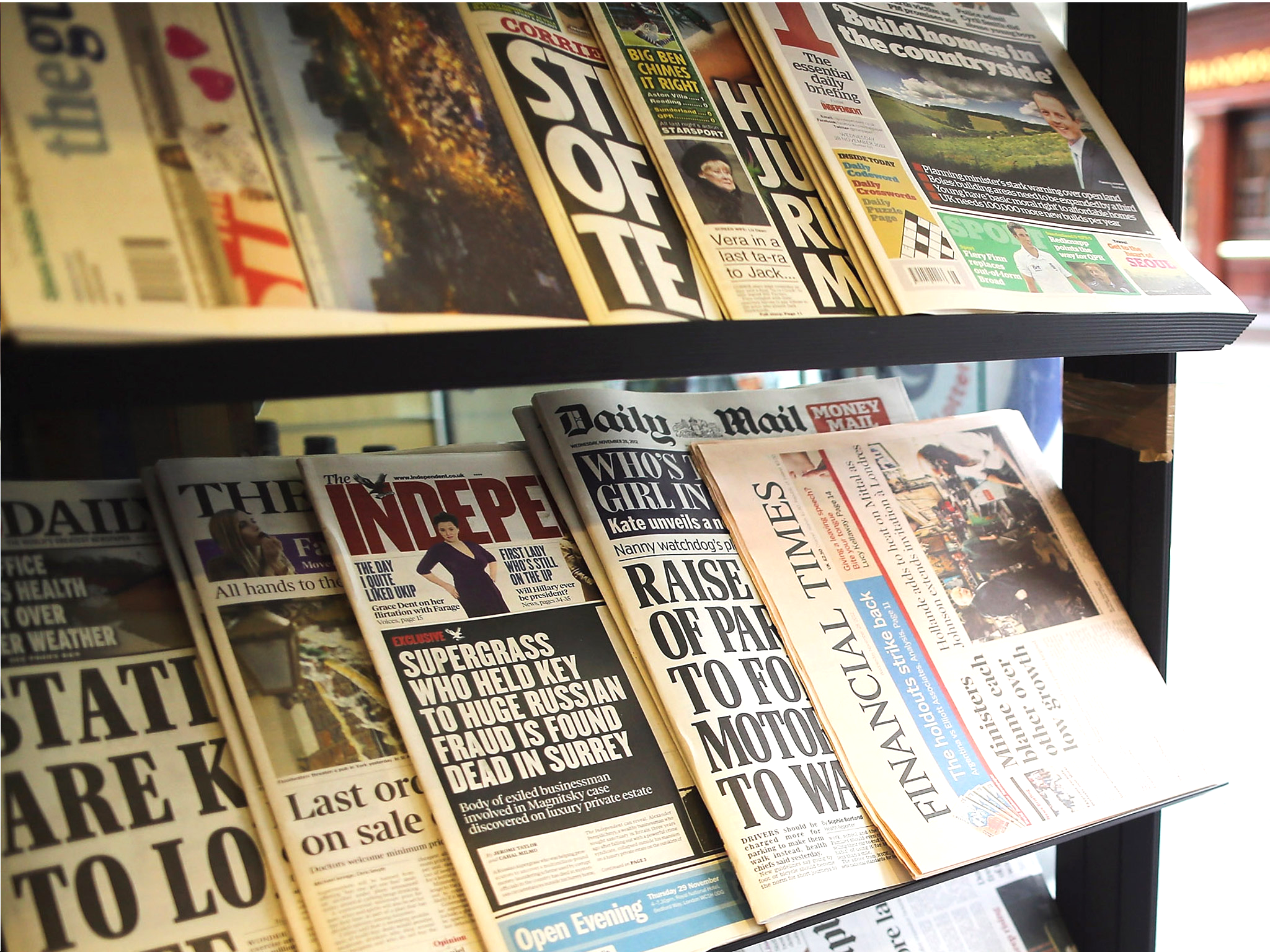Newspapers set out rival plan for press regulation

The Government has poured cold water on an alternative plan for press regulation, backed by three of the country's largest newspaper groups, which proposed an independent system of self-regulation with the power to administer £1m fines but which would not be backed by statute.
News International (publisher of The Sun), Telegraph Media Group and Associated Newspapers (owner of the Daily Mail) rejected the Government's plan for the future of press regulation and published their own proposal for a Royal Charter to create a "tough" and "independent" new system of self-regulation.
A statement co-ordinated by the Newspaper Society, which represents national and local newspaper publishers as well as the magazine industry, said that the Government's proposals, presented last month after cross-party discussions, had been condemned by a range of international media freedom organisations and enjoyed "no support within the press" in the UK.
"A number of its recommendations are unworkable and it gives politicians an unacceptable degree of interference in the regulation of the press," warned the statement.
The newspapers will take their alternative proposal, closely based on the draft Royal Charter published in February, to the Privy Council for approval next month.
It removes a Government proposal to dissolve the Royal Charter with a two-thirds majority vote of both houses of Parliament.
Instead, the charter could only be amended or withdrawn with the unanimous permission of an independent recognition panel, the board of the new regulator and the unanimous agreement of four industry bodies: the Newspaper Society, the Newspaper Publishers Association, the Periodical Publishers' Association and the Scottish Newspaper Society.
The newspapers said their plan would guarantee the genuine independence of the industry from politicians, with all the bodies making up the new regulator having a majority of independent members appointed openly and transparently.
However newspapers would retain a "veto" of appointments to the board of the new regulator. The self-regulatory body's board would have to include a majority of people who are independent of the press, along with a "sufficient" number of people with experience of the industry, including former editors and senior or academic journalists.
The provisions are unlikely to win the support of Hacked Off, the group campaigning for press regulation, which argues that representatives of the newspaper industry held too great an influence over the Press Complaints Commission, which will be replaced.
The Government urged the newspaper industry to focus on implementing the Royal Charter which Parliament has already approved. A Department of Culture, Media and Sport spokesperson said:
"The Privy Council Office will need to look at this proposal. We have already set out a draft Royal Charter which has cross-party agreement."
Chris Blackhurst, editor of The Independent and group editorial director of The Independent and Evening Standard, questioned whether the alternative charter would attract sufficient support among legislators.
Mr Blackhurst said: "On the face of it, there's nothing in here that we would object to. But in the end it's not our objections that matter, it's the politicians'. This will only work if the politicians find it acceptable."
Peter Wright, the Associated Newspapers executive tasked with dealing with Leveson negotiations, told BBC Radio 4's World at One he had spoken to the editors of The Guardian and The Financial Times and they both thought it was "a good idea to get the ball rolling" but conceded that no editor "has signed up on the specifics".
Tony Gallagher, editor of The Daily Telegraph, tweeted: "Can anyone possibly be surprised we have rejected Lab-Lib-Hackedoff stitch up- not forgetting walk on role for sleepy Letwin.(PM was in bed)"
Harriet Harman, the Labour deputy leader, who was present at the late-night meeting which reached all-party agreement on a Royal Charter, said: “The Royal Charter implements Lord Justice Leveson’s recommendations. It was supported unanimously by the House of Commons and had the full backing of the House of Lords. The important thing is that we get on with implementation.”
Subscribe to Independent Premium to bookmark this article
Want to bookmark your favourite articles and stories to read or reference later? Start your Independent Premium subscription today.

Join our commenting forum
Join thought-provoking conversations, follow other Independent readers and see their replies